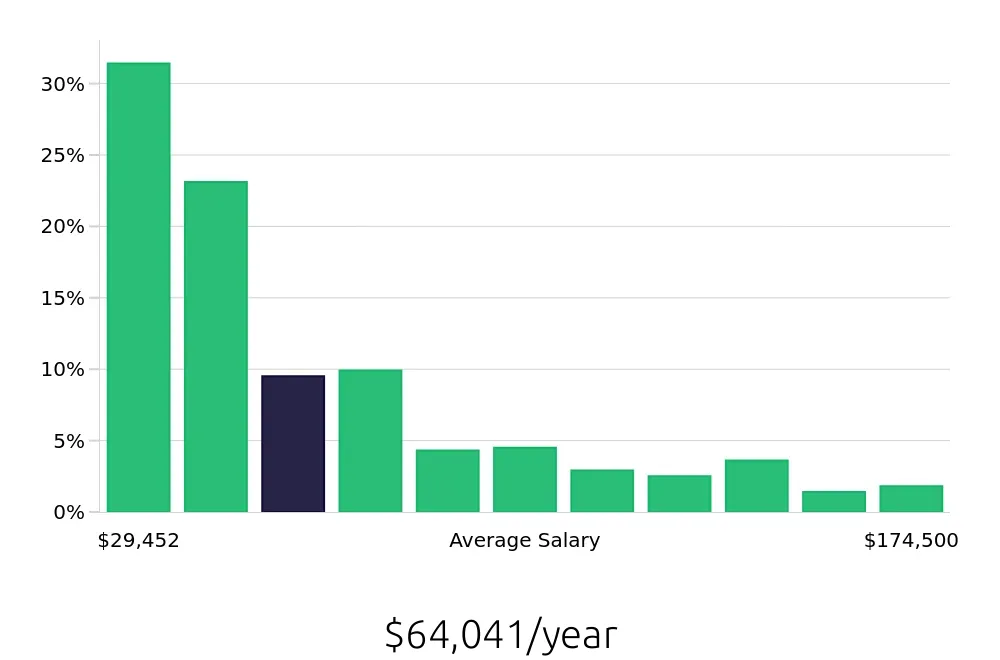Position
Overview
A programmer designs and writes computer programs. They create software that meets user needs. Programmers write code in various languages like Java, Python, or C++. They test and debug their programs to ensure they work correctly. Programmers often work in teams, collaborating with designers and other developers to create new software applications. They update existing software and fix bugs to improve performance.
Responsibilities of a programmer include analyzing user needs, designing software solutions, writing and testing code, and maintaining software. They use tools like integrated development environments (IDEs) to write code efficiently. Programmers must stay updated with the latest programming languages and technologies. Their goal is to develop software that is reliable, efficient, and user-friendly. The work environment often includes offices, but some programmers work remotely. Programming offers a dynamic and challenging career in the tech industry.
Becoming a programmer involves a structured process that starts with learning the basics and ends with gaining real-world experience. By following these steps, you can build a solid foundation in programming and increase your chances of finding a job in the tech industry.
First, identify the programming languages that interest you. Popular languages include Python, Java, and JavaScript. Next, start with online tutorials and courses. Websites like Codecademy and Coursera offer great starting points. Then, practice coding by working on small projects. This hands-on experience helps you understand concepts better. Join online forums and communities to ask questions and share your work. Lastly, build a portfolio to showcase your projects. This portfolio will be valuable when applying for jobs.
To gain more experience, consider the following steps:
Interest in programming can lead to a rewarding career in technology. The time needed to become a programmer varies. Factors like education, experience, and dedication play important roles. Many professionals find it helpful to complete a bachelor's degree in computer science or a related field. This path usually takes about four years.
Coding bootcamps offer another way to learn programming. These intensive programs can last from three months to a year. They focus on practical skills and real-world projects. Some people become proficient in programming through self-study and online courses. They dedicate time each day to practice coding. This approach can take a few months to several years, depending on the individual's commitment and prior knowledge.
We are seeking a talented and experienced Programmer to join our dynamic team. The ideal candidate will have a strong background in software development and a passion for creating innovative solutions. This role offers an exciting opportunity to contribute to various projects and work in a collaborative environment.
Responsibilities:
Qualifications
Programming offers a rewarding career path for those who enjoy problem-solving and creating new technologies. Programmers design software, test code, and update existing systems. They work in various industries, from tech companies to healthcare and finance. This job allows for creativity and innovation. Programmers often enjoy flexible work hours and the chance to work remotely.
Like any career, programming has its pros and cons. On the positive side, this job offers high demand, competitive salaries, and opportunities for growth. Programmers can specialize in many areas, such as web development, app creation, or data analysis. They also have the chance to work on exciting projects that make a real impact. However, the job can be challenging. Programmers must continuously learn new languages and technologies. They often work long hours, especially when a deadline is near. Debugging code can be frustrating, but it is a key part of the job.
To consider the pros and cons of a programming career:
The job outlook for programmers is solid for those entering the field. The Bureau of Labor Statistics (BLS) reports around 18,200 average job positions per year. This steady demand highlights a robust market for skilled programmers. Whether new to the field or looking to advance, the outlook remains positive.
Programmers can expect an average national annual compensation of $42,750. This figure offers a stable income, making the field attractive to many job seekers. Hourly compensation stands at $20.55, reflecting the value of skilled programming work. For those skilled in coding and problem-solving, these figures present a rewarding career path.
Job openings are expected to decrease by 10.1% from 2022 to 2032, according to the BLS. Despite this change, the overall outlook remains favorable. Programmers with up-to-date skills and knowledge will find ample opportunities. Continuous learning and adaptation to new technologies will be key to success in this evolving field.
